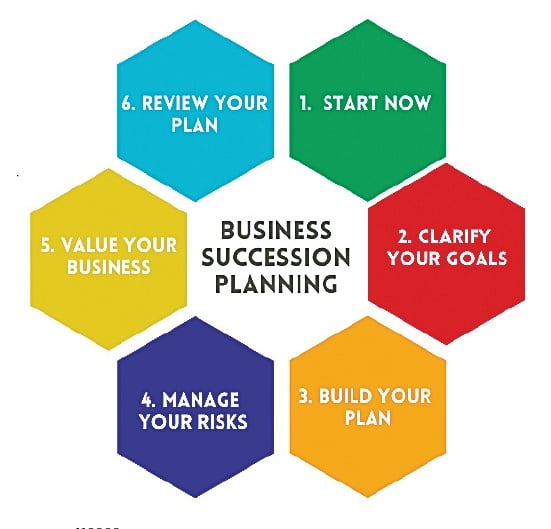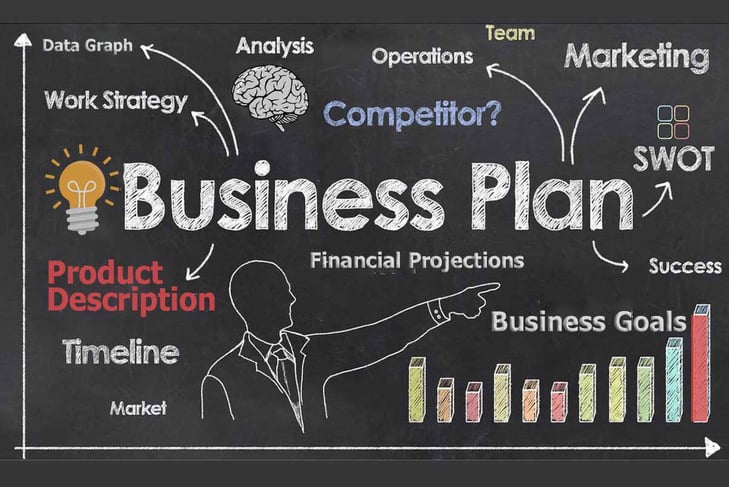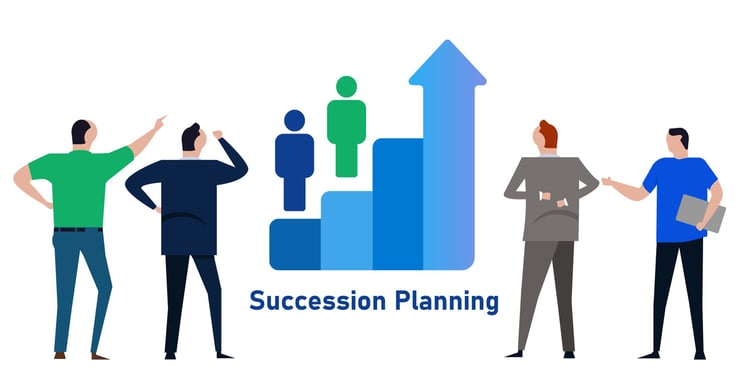Succession Planning for Small Businesses: Prepare for a Seamless Transition
Learn how succession planning for small businesses ensures smooth transitions, higher valuations, and lasting legacies. Get your business ready today.
4/7/20255 min read
Succession planning is the cornerstone of ensuring a business’s longevity and success beyond its current leadership. For small businesses, particularly those owned by Baby Boomers nearing retirement, this process is more critical than ever. With Baby Boomers owning over 50% of the global market, the next 5 to 10 years present a unique opportunity to transition these businesses to new owners—whether it’s Gen X, Millennials, or Gen Z entrepreneurs.
However, many small businesses are not succession plan ready. Key assets like intellectual property (IP), processes, and customer relationships are often tied too closely to the business owner. This creates significant risks for potential buyers and diminishes the business's value. Let’s explore what it means to make a business succession plan ready and how you can secure your legacy while maximizing your business’s potential.
Why Succession Planning is Crucial for Small Businesses
Succession planning is not just about finding someone to take over your business; it’s about ensuring that the transition is smooth, the business remains profitable, and its legacy endures. Without a plan in place, small businesses risk losing value, disrupting operations, or even failing altogether when ownership changes hands.
For Baby Boomer-owned businesses, succession planning is particularly urgent. Many owners have spent decades building their companies but have yet to prepare them for life after their leadership. By taking proactive steps now, you can ensure that your business is attractive to buyers and set up for long-term success under new ownership.
The Three Pillars of Succession Planning: IP, Scalability, and Valuation
At The Makeover Group (TMG), we focus on three key areas to prepare small businesses for succession: Intellectual Property (IP), Scalability, and Business Valuation. Let’s break these down:
1. Intellectual Property (IP)
Intellectual property is the intangible essence of your business—the know-how, processes, and unique value propositions that set you apart from competitors. It’s what keeps customers coming back and defines your brand’s identity.
How to Prepare Your IP for Succession:
Document Processes: Ensure all critical processes are documented in an accessible format. Ask yourself: Can a 12-year-old understand and execute these instructions? If not, simplify them.
Customer Retention Plans: Develop strategies to retain customers after the transition. This could include loyalty programs or introducing successors early to key clients.
Knowledge Transfer: Create systems for transferring institutional knowledge from you and your team to future owners.
Example: A family-owned bakery could document its recipes, supplier relationships, and customer loyalty programs in a comprehensive manual to ensure continuity after the sale.
2. Scalability
Scalability refers to how well your business can grow without requiring constant intervention from you as the owner. A scalable business is more attractive to buyers because it can operate efficiently even when leadership changes hands.
How to Build Scalability into Your Business:
Automate Financial Processes: Use software to automate invoicing, payments, and bookkeeping tasks.
Centralized Reporting Systems: Implement tools that provide real-time insights into sales, expenses, and other key metrics.
Online Presence: Ensure your website is well-structured and optimized for search engines. Establish an active presence on social media platforms relevant to your audience.
Customer Reviews: Make client testimonials easily accessible online to build trust with potential buyers.
Inbound Lead Generation: Develop systems that consistently generate quality leads without relying solely on cold outreach or personal effort.
Operational Independence: Train your team to handle day-to-day operations so the business can thrive without you putting out fires daily.
Example: A local landscaping company could implement scheduling software for client appointments and train employees on equipment maintenance protocols to reduce reliance on the owner.
3. Business Valuation
A well-prepared business has a clear valuation based on its financial health and growth potential. Buyers want transparency and confidence that they’re investing in a profitable venture with room for expansion.
How to Increase Your Business Valuation:
Track Financial Metrics: Regularly monitor EBITDA (Earnings Before Interest, Taxes, Depreciation, and Amortization) through detailed Profit & Loss (P&L) statements.
Grow Revenue Streams: Diversify income sources by introducing new products or services.
Cut Costs Strategically: Identify inefficiencies in operations and reduce unnecessary expenses without compromising quality.
Ensure Liquidity: Maintain healthy cash reserves to cover operational needs and pay dividends.
Retain Top Talent: Promote key employees and offer incentives to ensure they stay with the company post-sale.
Example: A small printing shop could increase its valuation by expanding into digital printing services while reducing overhead costs through bulk material purchases.
Common Challenges in Succession Planning
While succession planning offers immense benefits, it also comes with challenges that must be addressed:
Emotional Attachment: Many owners struggle with letting go of their businesses due to sentimental ties or fear of change.
Lack of Time: Running a business leaves little time for strategic planning.
Unclear Goals: Without clear objectives for retirement or transition, planning becomes difficult.
Team Resistance: Employees may feel uncertain about their roles under new ownership.
By acknowledging these challenges early on and seeking professional guidance where needed, you can navigate them effectively.
Steps to Create a Succession Plan
Start Early
Begin succession planning at least three to five years before you intend to exit the business. This gives you ample time to address gaps and optimize operations.
Define Your Goals
Decide whether you want to sell the business outright, pass it on to family members, or explore employee buyouts.
Evaluate Your Business
Conduct a thorough assessment of your financials, operations, and market position.
Develop a Roadmap
Create a step-by-step plan outlining how ownership will transition smoothly while maintaining profitability.
Communicate with Stakeholders
Keep employees informed about succession plans to build trust and minimize uncertainty.
Review Regularly
Update your plan periodically to reflect changes in market conditions or personal goals.
The Benefits of Being Succession Plan Ready
Preparing your small business for succession has far-reaching benefits:
Higher Valuation: A well-prepared business commands a premium price during negotiations.
Smooth Transition: Clear documentation and processes ensure minimal disruption during ownership changes.
Employee Retention: Transparent communication fosters loyalty among staff members.
Legacy Preservation: Succession planning ensures that your hard work continues under capable leadership.
Secure Your Legacy with Succession Planning
Succession planning for small businesses is not just about preparing for retirement—it’s about securing your legacy, maximizing value, and ensuring continuity for years to come. By focusing on intellectual property, scalability, and valuation readiness, you can position your business as an attractive investment while making the transition seamless for all stakeholders.
At The Makeover Group (TMG), we specialize in helping small businesses navigate this process with confidence and clarity. Whether you’re looking to sell or pass down your company, our proven strategies will help you achieve your goals while preserving what matters most—your legacy.
Start preparing your business for succession so you can enjoy peace of mind knowing it’s ready for whatever comes next. We’d love to connect—book a time that works for you: hello@yourtmg.com






Stay connected
© 2024. All rights reserved.
